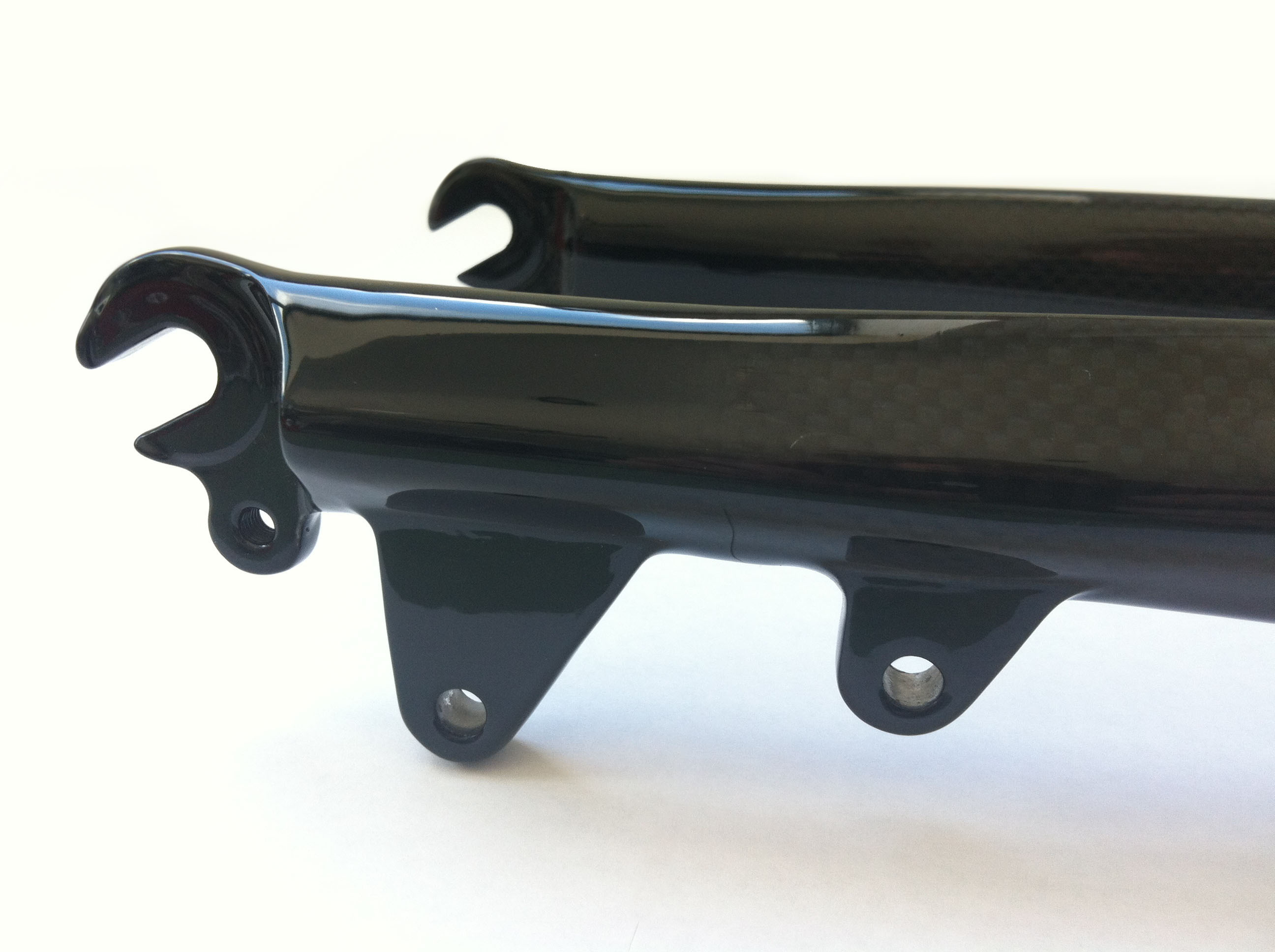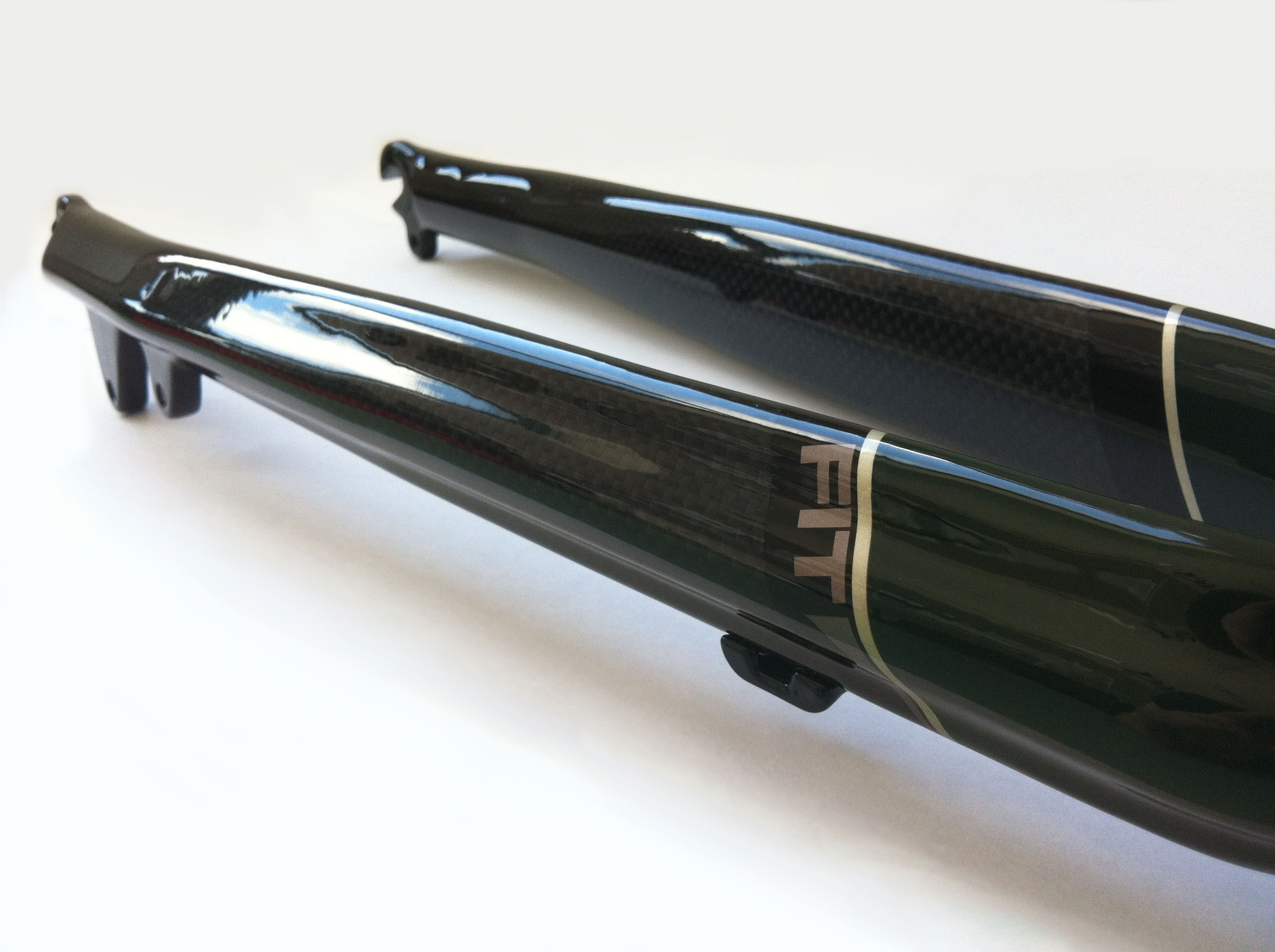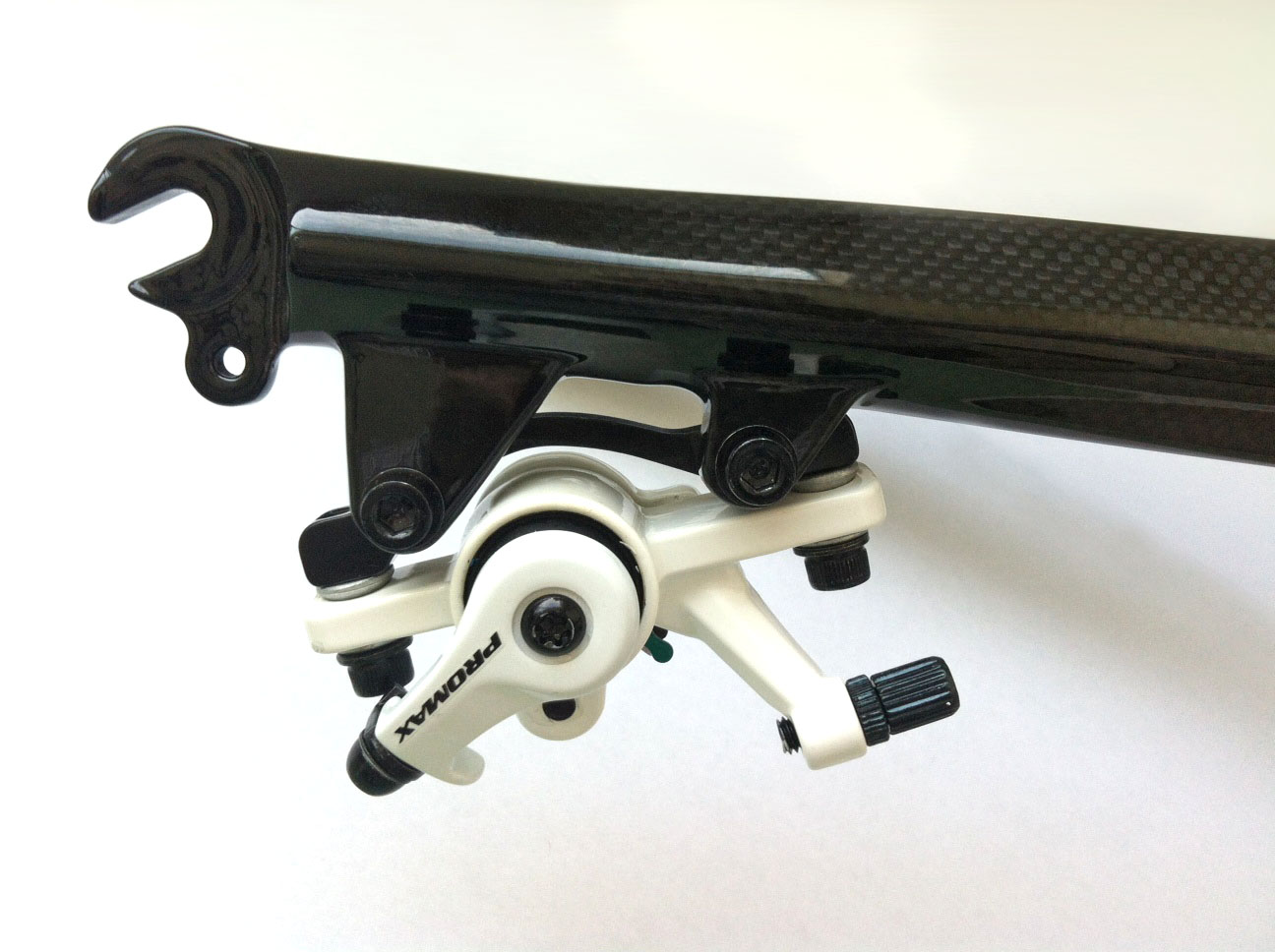Montague frame sets are now in stock, and the FIT Custom has a brand new addition; a carbon fork with disc brake mounts.
The next step in the evolution of the road bike is on the horizon: disc brakes. We’ve seen them on mountain bikes for years now, in fact 4 of Montague’s 5 mountain bike models use them, but road cyclists are finally starting to look toward the disc brake as a viable option.
Cyclocross racing has gained major popularity in the last few years, and cyclocross racers were some of the first adopters of disc brakes on road frames. It makes sense, a cyclocross race involves taking what is essentially a road frame, and riding it off road, in conditions that are often wet, muddy, and downright grueling. A standard road caliper is not going to cut it when you have an inch of mud caked on your tire. Most riders are running cantilever rim brakes, which offer much more clearance than road calipers, but the disc brake has carved out a piece of that market as well.
With disc brakes appearing on full carbon cyclocross bikes, people asked, why not put them on road bikes?
While disc brakes offer more stopping power than rim brakes, the main reason to use them on a road bike is control. A disc rotor is a much smaller diameter than the rim, so it actually takes more force to stop a bike with a disc. If a rim brake needs 200 lbs of force to lock up the wheel, a disc caliper needs closer to 1000 lbs. The caliper can easily provide the additional force, and the advantage comes from the fact that 0 to 1000 lbs is a bigger window in which to control the braking force.
In addition, disc brakes have a superior feel to rim brakes. Standard road calipers naturally flex, the rubber brake pads compress, and with rim manufacturers striving to make lightweight rims, the rim itself can compress upon braking. With a disc brake, essentially nothing flexes or compresses, providing a solid feel. You might find disc brakes seem overly grippy at first, but once you get used to them, the control is unparalleled.
And let’s not forget their performance in bad weather. If you’re using rim brakes now, you’ve no doubt noticed that braking power is significantly reduced when riding in the rain. A rubber pad on a wet aluminum or carbon braking surface simply produces far less friction. Disc brakes use metallic or hard resin pads and a stainless steel rotor. The combination doesn’t suffer from the same decrease in performance when wet.
If you’ve been wanting to build a folding road or cyclocross bike, you can now get all the advantages of disc brakes on a FIT Custom frame, and still fold that bike for the car trunk, train, or closet.





Hi, is there anything wrong ( in terms of frame resistance) installing 180mm discs (rotors) instead of the OEM 160mm?
This is a Paratrooper Pro 2015 .
Thanks for feedback
Alberto